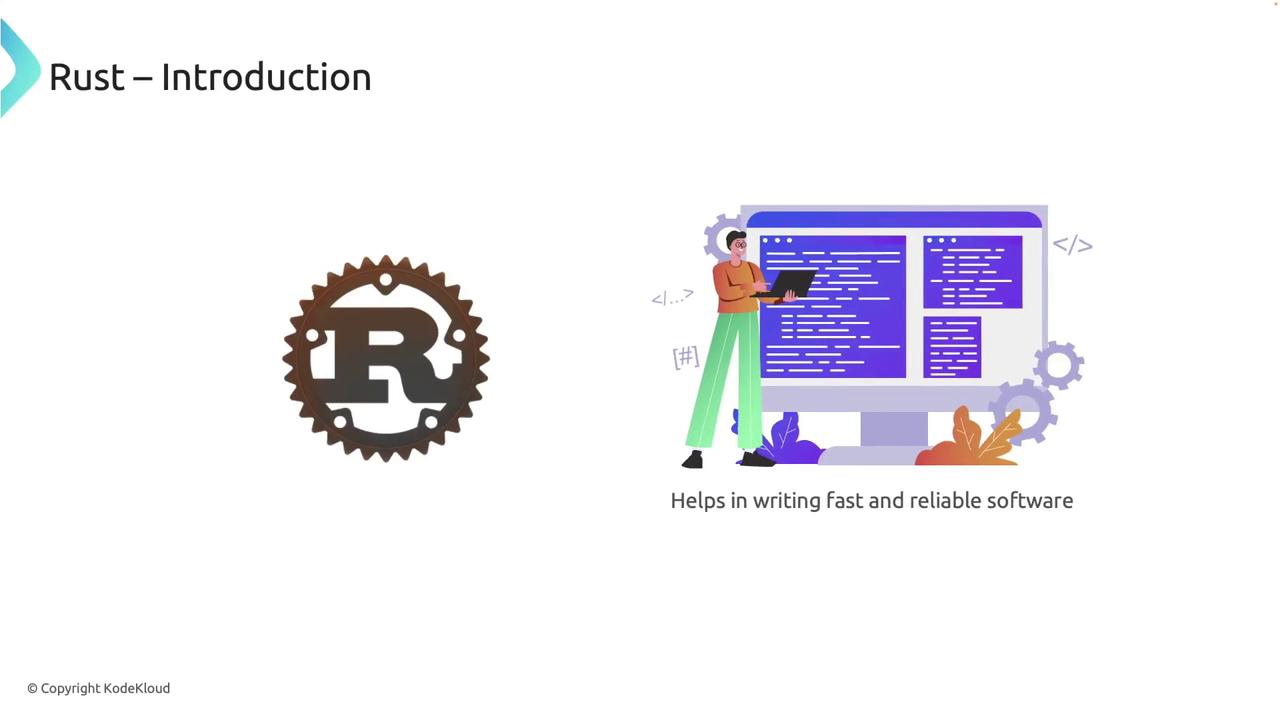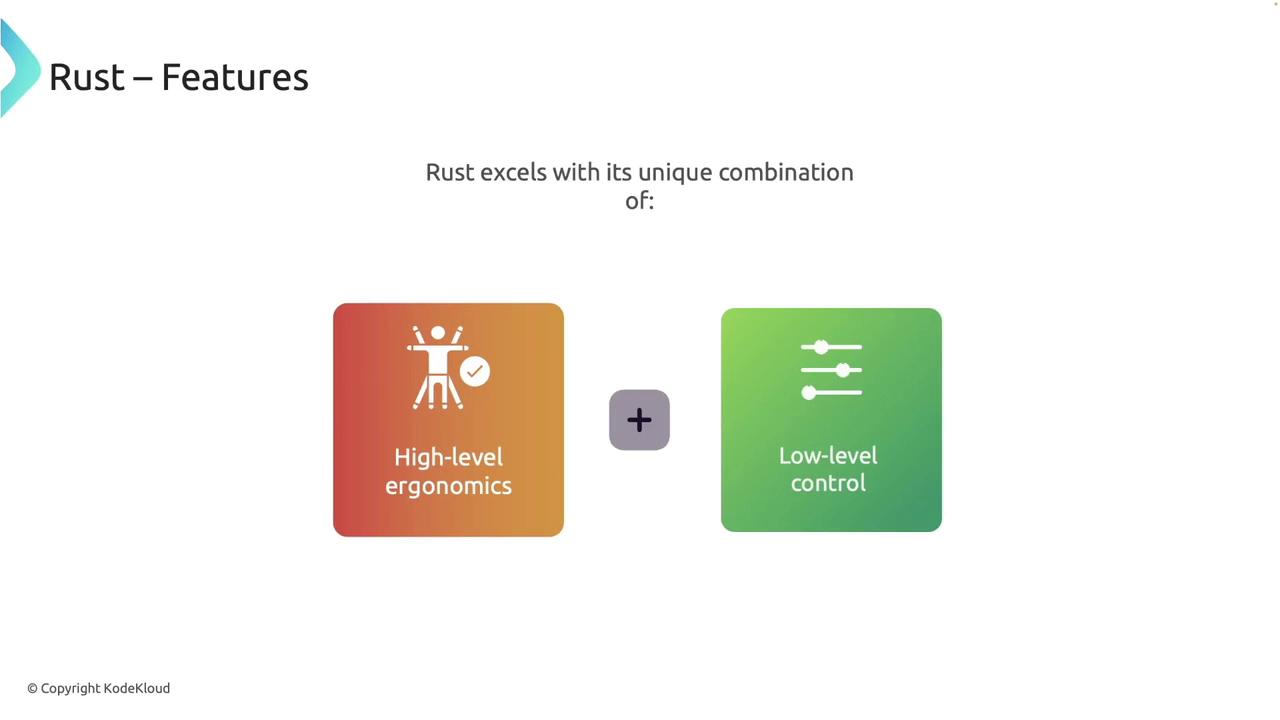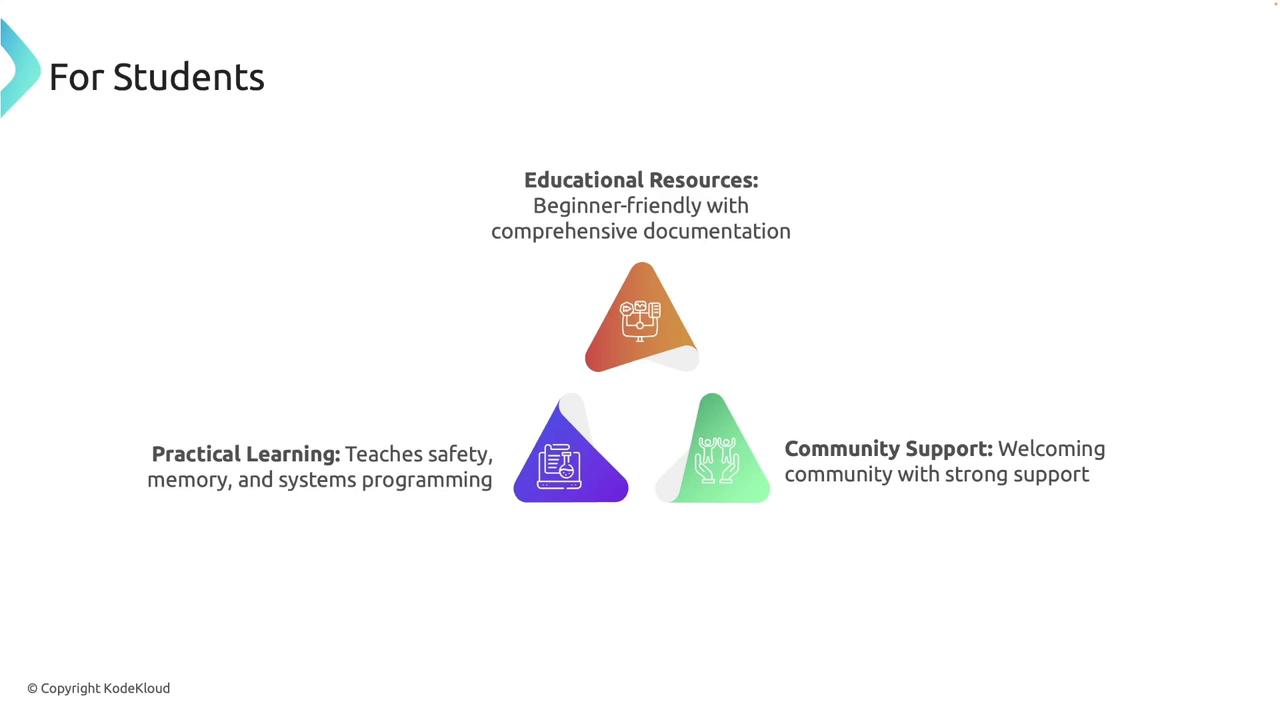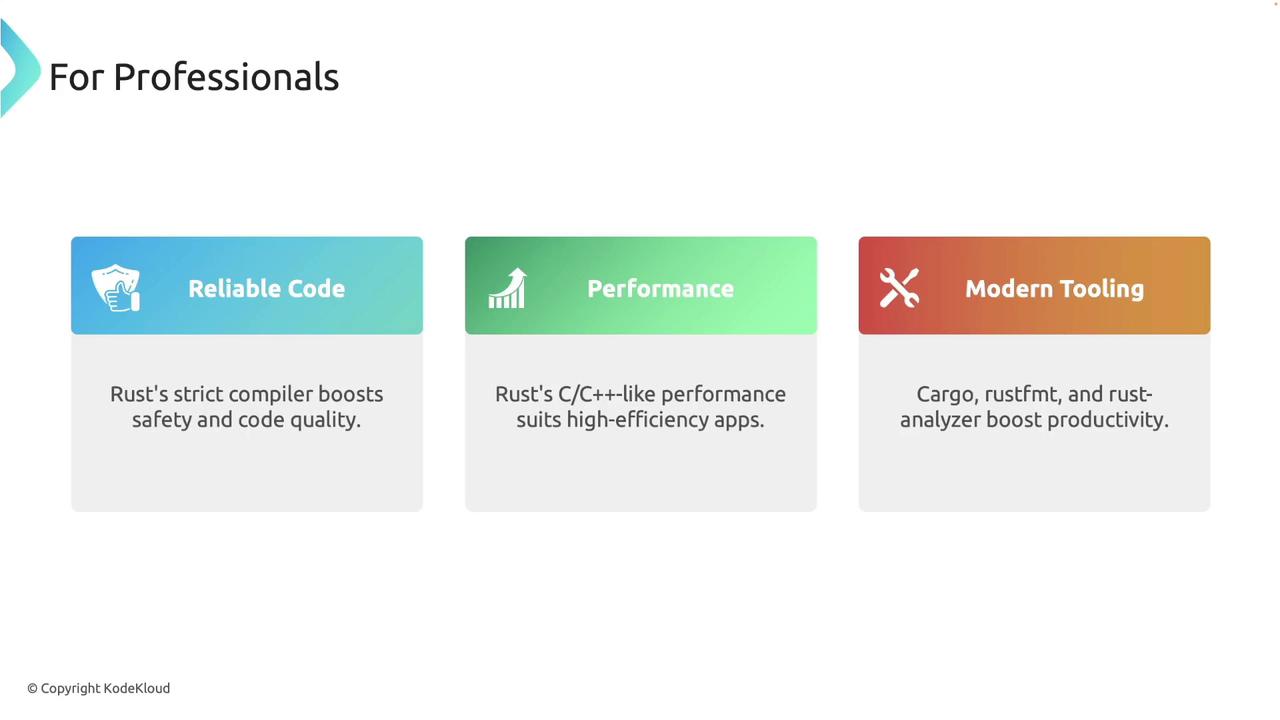Rust Programming
Getting Started with Rust
Introduction to Rust
Hello everyone, my name is Priyanka Yadav and I'll be your instructor for this lesson. Today, we'll explore Rust, a programming language that is quickly becoming one of the most sought-after tools in the tech industry. Whether you are an experienced developer or just beginning your coding journey, Rust offers a rich mix of performance and safety features that can benefit everyone.
Why Rust?
Rust is a systems programming language designed to help you build fast and reliable software. It uniquely blends high-level ergonomics with low-level control. This means you can write safe, expressive code using Rust's comprehensive standard libraries and powerful syntax, while retaining the ability to manually manage system resources like memory when performance or precision is key.

Rust's High-Level Ergonomics and Low-Level Control
Rust stands out by combining the benefits of high-level programming convenience with the raw control over hardware typically reserved for low-level languages. This synthesis allows developers to create clean, safe, and high-performance code without compromising on flexibility.

Rust for Students
Rust is an ideal language for students interested in systems programming. Here’s why:
- Comprehensive Documentation: Extensive and accessible documentation simplifies the learning curve, making complex systems programming topics approachable.
- Strong Community Support: The Rust community is welcoming and collaborative. You can find active forums, chat rooms, and mentorship programs ready to help you overcome coding challenges.
- Practical Learning: With Rust’s focus on safety and performance, you gain hands-on experience with critical concepts like memory management, concurrency, and low-level programming.

Note
If you're new to systems programming, Rust's clear and detailed resources make it an excellent first language to learn.
Rust for Professionals
For professionals, Rust brings a host of advantages that streamline development and enhance code reliability:
- Reliable Code: Rust’s compiler enforces strict safety checks, which help reduce bugs and improve code maintainability.
- High Performance: With speed comparable to C and C++, Rust is perfect for developing high-efficiency applications.
- Modern Tooling: Tools like Cargo for dependency management, Rustfmt for consistent code formatting, and Rust Analyzer for IDE support significantly boost productivity.

Note
Using Rust can lead to fewer runtime errors and improved application performance, making it a smart choice for modern software development.
Industrial Adoption
Rust is trusted by numerous leading companies for its performance and reliability. Some notable adopters include:
- Mozilla: Rust was originally developed at Mozilla to improve the performance of critical components in the Firefox browser.
- Dropbox: Parts of Dropbox’s file storage backend leverage Rust to enhance speed and reliability.
- Coursera: Rust powers data processing pipelines at Coursera, capitalizing on the language's safety and efficiency.
- Figma: Seeking improved performance, Figma transitioned their multiplayer synchronization engine from TypeScript to Rust.
- Microsoft: Rust is employed in various systems programming projects at Microsoft to boost safety and performance.
Regardless of whether you are a student beginning your exploration or a professional seeking a dependable, high-performance language, Rust is well-suited to address a diverse range of programming challenges.
Thank you for joining me on this in-depth exploration of Rust. I am excited to continue our learning journey together throughout this lesson.
For further reading and detailed tutorials, check out these resources:
Watch Video
Watch video content